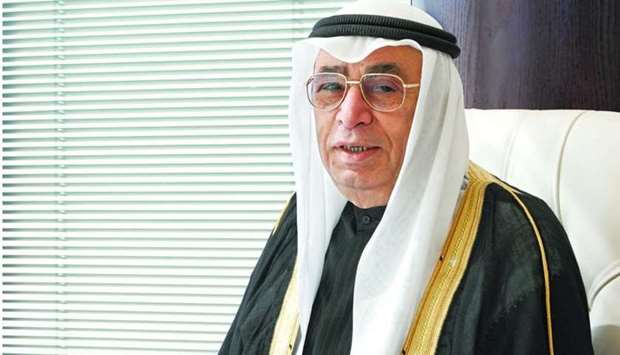At the Qatar Economic Forum (QEF), Powered by Bloomberg, Alfardan Group chairman Hussain Ibrahim Alfardan puts a spotlight on the nation’s rich heritage and its rapid transformation from a leading pearl exporter to one of the wealthiest countries in the world.
Qatar has changed a lot, he said in a video presentation during the QEF yesterday, titled *Guardian of the Sea, citing the country’s continuous growth since the discovery of oil and gas.
Recounting his childhood and growing up in a family associated with the pearl trade, Alfardan said: “My father was deep in this business, the only business we had in the whole region.”
However, the increasing popularity and demand for Japan’s cultured pearls impacted pearl diving – Qatar and the region’s source of livelihood in the past.
“Luckily, we got the oil, the economy starts growing. After that, you see what we are. All the pearl divers left diving and worked with the oil companies,” said Alfardan, who established successful businesses in jewellery, real estate, automotive, marine services, foreign exchange and hospitality.
Asked what makes a good pearl, he said: “It has to be perfectly round, it has to be clean, no dent.”
Born in 1933, Alfardan saw the various developments in Qatar, as well as the many challenges it faced over the years, including the diplomatic rift, which was resolved earlier this year.
“The blockade made us depend on ourselves,” he pointed out, adding that the country started producing more vegetables at that time.
“Trust is not easy to build when it’s cut, but we have to be wise enough to see that every country in the world has some differences, they have some problems, but they overcome them,” Alfardan said.
Alfardan hails from a renowned pearl-merchant family in Qatar. “He has played, and continues to play, an outsized role in the development of his country. He runs one of the largest conglomerates in the region,” according to the QEF website.
Qatar has changed a lot, he said in a video presentation during the QEF yesterday, titled *Guardian of the Sea, citing the country’s continuous growth since the discovery of oil and gas.
Recounting his childhood and growing up in a family associated with the pearl trade, Alfardan said: “My father was deep in this business, the only business we had in the whole region.”
However, the increasing popularity and demand for Japan’s cultured pearls impacted pearl diving – Qatar and the region’s source of livelihood in the past.
“Luckily, we got the oil, the economy starts growing. After that, you see what we are. All the pearl divers left diving and worked with the oil companies,” said Alfardan, who established successful businesses in jewellery, real estate, automotive, marine services, foreign exchange and hospitality.
Asked what makes a good pearl, he said: “It has to be perfectly round, it has to be clean, no dent.”
Born in 1933, Alfardan saw the various developments in Qatar, as well as the many challenges it faced over the years, including the diplomatic rift, which was resolved earlier this year.
“The blockade made us depend on ourselves,” he pointed out, adding that the country started producing more vegetables at that time.
“Trust is not easy to build when it’s cut, but we have to be wise enough to see that every country in the world has some differences, they have some problems, but they overcome them,” Alfardan said.
Alfardan hails from a renowned pearl-merchant family in Qatar. “He has played, and continues to play, an outsized role in the development of his country. He runs one of the largest conglomerates in the region,” according to the QEF website.


